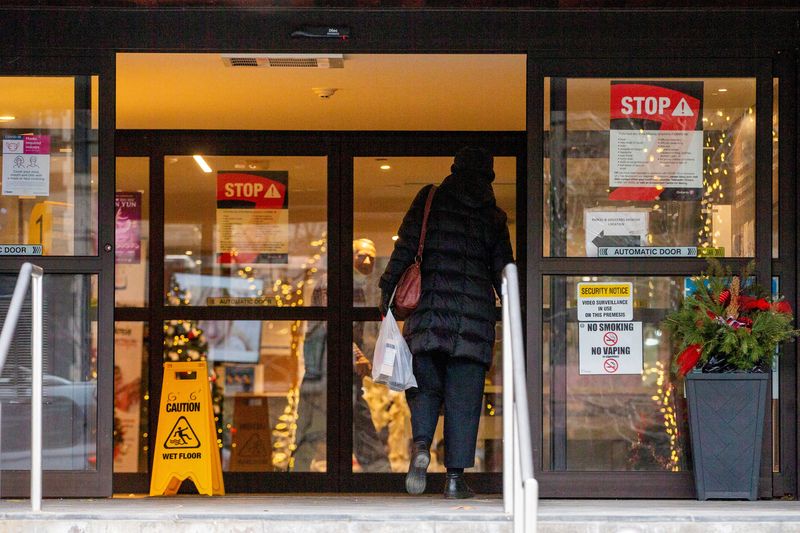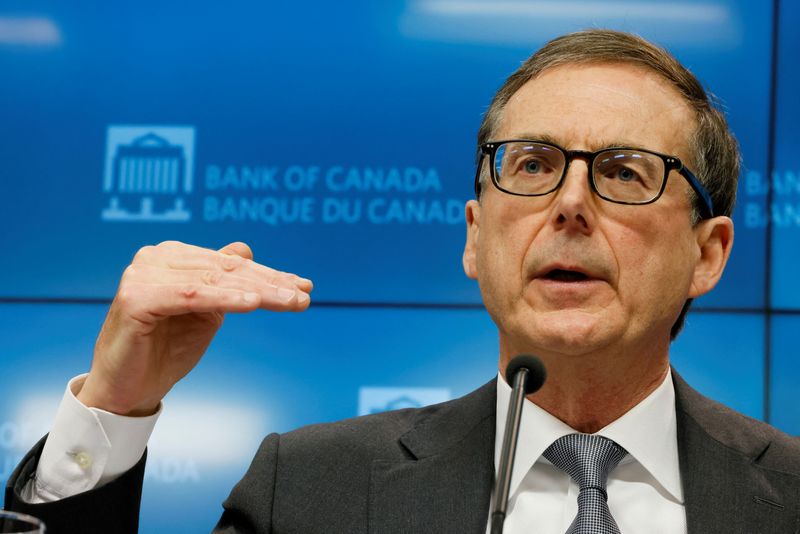By Julie Gordon and Ismail Shakil
OTTAWA -Canada’s annual inflation rate accelerated again in January to hit a fresh 30-year high at 5.1%, as food and housing costs continued to rise, official data showed on Wednesday, bolstering the case for a steady series of interest rates hikes.
January’s figure is the highest since 5.5% recorded in September 1991 and the 10th consecutive month above the Bank of Canada’s 1%-to-3% control range, Statistics Canada data showed. Analysts polled by Reuters had expected inflation to remain at 4.8% in January.
“It’s hotter than expected,” said Derek Holt, vice president of capital markets economics at Scotiabank. “To me this suggests that the economy is moving on from Omicron’s effects.
“The restrictions may have added a little bit to the inflationary pressures. But there is certainly no slowdown,” he added.
Shelter costs jumped 6.2% in January year-on-year, the fastest pace since February 1990, while food prices rose 5.7% as shopping for groceries became more expensive, both on supply chain issues and unfavorable growing conditions.
With price gains widespread, it appears businesses are passing on cost increases to consumers, analysts said. Rising energy prices, Canada’s record-smashing housing market, and wage pressure are set to send inflation still higher.
“Simply put, this is far too hot for comfort for the Bank of Canada, so expect a steady series of rate hikes in the coming meetings,” Doug Porter, chief economist at BMO Capital Markets, said in a note.
Porter expects four hikes in a row, to start, but added “it may well require much more than that to bring inflation to heel.”
Bank of Canada Governor Tiff Macklem has said interest rates need to rise to tackle hot inflation and Canadians should expect multiple hikes.
Still, analysts doubted the data would be enough to sway the central bank to hike by 50 basis points rather than 25 basis points at its March 2 policy meeting. Money markets see about a 30% chance of the larger increase.
“It’s clear that central bankers need to tighten policy, but high household debt levels will temper the Bank of Canada’s aggressiveness,” Royce Mendes, head of macro strategy at Desjardins Group, said in a note.
The CPI common measure, which the central bank says is the best gauge of the economy’s underperformance, rose to 2.3% from 2.1% in December.
The Canadian dollar was trading 0.2% higher at 1.2684 to the greenback, or 78.84 U.S. cents.
(Additional reporting by David Ljunggren and Steve Scherer in Ottawa, and Fergal Smith in Toronto; Editing by David Holmes, Mark Heinrich and Jonathan Oatis)

